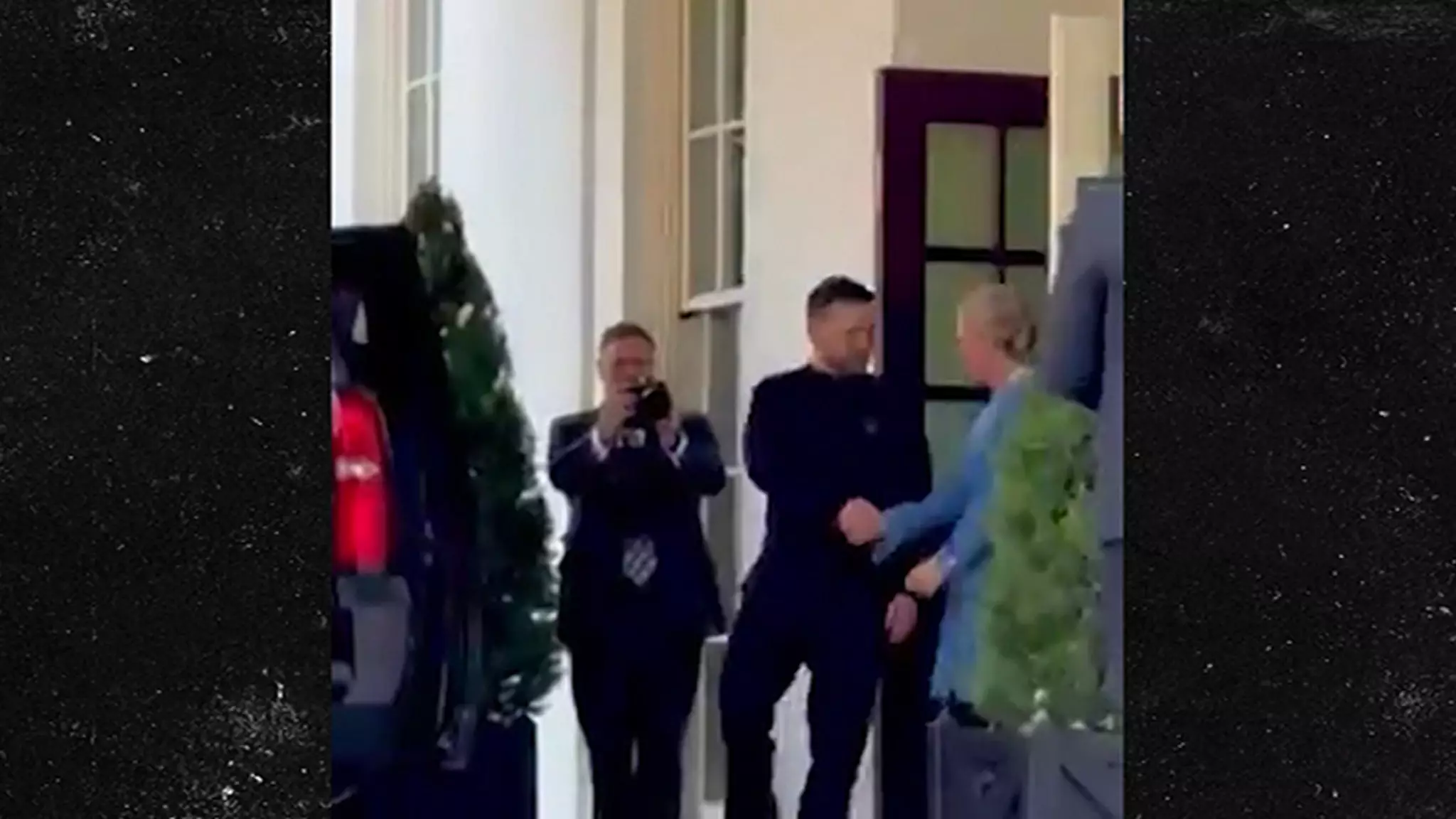In a dramatic turn of events that has captured global attention, a heated exchange between U.S. President Donald Trump and Ukrainian President Volodymyr Zelensky led to a rapid escalation in diplomatic fallout. According to reports from TMZ, the confrontation unfolded during a scheduled meeting at the White House, designed to address key issues regarding the ongoing conflict between Ukraine and Russia. The televised discussion quickly soured, with both leaders trading barbs that not only reflected stark geopolitical tensions but also exposed deep-seated frustrations on both sides.
White House insiders reveal that the exchange reached a boiling point, prompting Trump to insist that Zelensky leave the premises. The atmosphere was charged with claims of disrespect, as Trump reportedly felt undermined by Zelensky’s demeanor, which included perceived dismissive gestures such as shrugging and rolling his eyes. These non-verbal cues, which may seem trivial to an outsider, were interpreted by Trump as indications of Zelensky’s lack of gratitude towards U.S. support in Ukraine’s ongoing struggle against Russian aggression.
Underlying Tensions and Historical Context
This incident was not just a result of a singular disagreement; it encapsulated a broader context of dissatisfaction that has been simmering for years. Trump has previously made controversial statements regarding Ukraine, including remarks that portrayed Zelensky as a “dictator” and suggested that Ukraine bore some responsibility for the war that has devastated the region. Notably, this confrontation coincides with the three-year anniversary of Russia’s invasion of Ukraine, a reminder of the precarious stability in Eastern Europe and the urgent need for effective diplomacy.
Zelensky’s public response, expressing gratitude for U.S. support, serves as an attempt to soften the fallout from this high-profile diplomatic breakdown. His remarks underscore the complexity of the relationship, as Ukraine continues to rely on American backing amidst ever-present threats from Russia. The cancellation of a planned lunch following the meeting only adds to the narrative of disarray, leaving questions about future dialogues and support for Ukraine.
The Implications for Future Relations
The fallout from this encounter raises critical questions about the future of U.S.-Ukraine relations. With Trump’s assertion that Zelensky is “not ready for peace”, the door has seemingly closed for immediate reconciliation. This position signals potential disruptions not only in bilateral talks but also in broader international efforts to address the humanitarian crisis stemming from the war.
As these events unfolded, they highlighted the fragility of diplomatic engagements in times of crisis. The gesture of accommodating foreign leaders in the White House can quickly devolve into public disagreements, reflecting vulnerabilities that can alter the course of alliances. As the situation continues to evolve, it remains crucial for both sides to find a path forward, balancing domestic political pressures with the pressing need for stability in Eastern Europe.
The turbulent exchange between Trump and Zelensky exemplifies the complexities inherent in high-stakes diplomacy. As they navigate personal grievances and national interests, the future of the U.S.-Ukraine partnership remains uncertain amidst prevailing global challenges.

